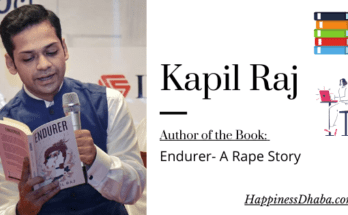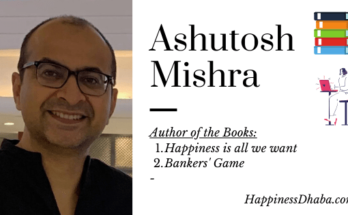Author Atul Jalan
1. We all know Atul Jalan, the CEO of Manthan Systems. Please tell us who is Atul Jalan in real life? What is his educational background?
Atul Jalan is a technologist, a humanist, a futurist, and a romanticist. Not surprising then that his day job as a serial entrepreneur is well balanced by evenings as a storyteller.
As founder CEO of Manthan, Atul keeps the spirit of invention and innovation burning at Manthan, driving the design of human-like algorithmic customer experiences for retail and consumer industries worldwide.
Atul considers himself fairly lucky, for technology is what he loves and technology is what he does. Science and technology have been his first and he fears his everlasting love.
He likes to look at how technology is transforming man and the institutions he has created; changing how we do things, reshaping us as humans. And this is the perspective on technology that he usually speaks and writes about – not as an application of science but as a way of life.
His first book, Where Will Man Take Us? deals with the commingling of our biology with the technology we have created; how man is now dictating evolution. It looks at how technology is changing us as a species and transforming the society we live in..
Loquacious and a polymath, Atul can hold forth the camera obscura and Johannes Vermeer as he can on software and AI. Atul loves skiing or kayaking around the world. What is not so well known, is that he also dabbles in poetry and takes a keen interest in a wide range of subjects from music to astronomy.
It is very unlikely that you would find him not working on something new. Atul has recently created a 3D studio. He is building a collection of cycles and the camera obscura at present. And soon, he intends to ride through Morocco, in his own cycle. (Though his son, prefers skiing.)
2. Tell us something about Manthan systems. How it started, what were the initial struggles and where is it heading?
The pioneering effort, Manthan, is my 4th successful technology venture. Today, Manthan is a global leader in bringing the benefits of AI and analytics to help consumer-focused businesses, retailers, and restaurant chains globally, to deliver personalized and differentiated customer experience. (Manthan.com)
After selling my last company, I was living in London contemplating the next thing I wanted from life. Having many esoteric thoughts from robotics to investing in a ski-resort, one day I opened a folder in my computer and named it ‘Manthan’ – which connotes deep introspection – for logging my ideas.
When the moment of epiphany happened, I foresaw data and analytics becoming the next frontier in business computing. That math and data science would change the paradigm, in a shift as huge as the industrial revolution.
In the name ‘Manthan’, I saw the essence and meaning of life, that of transcending trials and tribulations to achieve excellence, which I captured in this poem…
If all of us
were preservers,
there would be
no change.
no growth.
no advancement.
we need to create,
preserve, destroy.
we need to learn,
unlearn, re-learn.
Manthan is the churn,
and from this churn,
the new emerges.
As it turned out, this would also become the story and ethos of the company, as I envisioned a business that would churn vast amounts of data into intelligence. And walking into Manthan’s offices, one would not miss catching these words around the walkways.
With strong credibility with investors, my ideas for Manthan were swiftly welcomed and I was advised to move to the Bay area lock, stock, and barrel.
But I would go on to defy the convention of the time, and make an emotional and selfish decision to set-up shop in Bangalore, putting faith in the social impact it would have in his homeland, in the years to come.
Moving away from the software services trend in the Indian IT industry, I would pioneer a software product business.
3. Despite being the CEO of a multi-million dollar company, what drove you towards writing? Did you intend to become an author or did you have a specific reason behind writing this?

I think the man is a born storyteller. Sometimes I think it is this desperate desire to relate that led us to language and then, everything that followed.
From the stories we invented to where it has brought us today.
Imagine a Neanderthal Og, who has just seen a mammoth slip and fall. Or has just seen a mammoth fart joke. Imagine not having the language to explain that to the folks back in the cave.
If I were Og, I would have died of the sheer lack of language and therefore my inability to relate and raise a good laugh.
So yes, everyone has a story to tell. Everyone is a writer.
I grew up reading Isaac Asimov, Arthur C. Clarke, Philip K Dick, Robert Heinlein, and Douglas Adams and I now have, as an adult, the privilege to see some of those worlds come alive. Maybe it is this childhood love for both sci-fi and technology that has kept me interested in life-technology intersections.
I like to look at technology not as an application of science but as a way of life. It is not something we can see as adventitious any more. It is part of us and will only become more ingrained.
We and the technologies we have created have made this the most transformative era in our history. At no other time in human history has the rational mind been so intensely optimistic. In spite of having so much to worry about – nuclear annihilation, the melting polar caps, newer diseases, rise of bigotry and such – yet so much to look forward to.
I always believe we have two options open before us when we look at the world, and this has been true throughout history. We can opt to be disgusted with what man is capable of or we can marvel at what man’s many accomplishments. I always chose the latter. And that, is my inspiration.
4. How did the idea of “Where will Man Take us” come to you?
If we pause our hectic present to look at our history, we will observe two distinctly human capabilities (and their consequences) running in parallel and concurrently – our ability to create stories and our ability to transform these stories into technology. Which brings us to the consequences I mentioned earlier. We create stories that transform into technology and these technologies then go on to transform us.
Think about it. From the wheel to the steam engine to Google, our inventions have gone on to transform how we live. Our inventions always reinvent us. Irreversibly.
Now hold that thought. And apply that to how for the past couple of centuries, science fiction has been discussing Artificial Intelligence and Genetic Engineering at length. Very predictably, we have followed the story-technology pattern. Much of what was science fiction is now real, AI is here in our lives. And the consequence will be true as well. AI will transform us like never before.
I say this confidently because all this while technology was extrinsic. But it is not, anymore. Our biology is merging with the technologies we have invented – giving us control over pain, disease, ageing and maybe soon, even death.
This path AI and Genetic Engineering (and other emerging technologies) have put us on, will only end with man elevating himself into a God. From here on, we can no longer be content with being mere humans.
This reinvention we are going through has multiple facets. One of the most critical and inevitable is societal change. And that’s where I spend the most time in the book. Much of what defines us as man is directly impacted by these transformations and transformational times. As also some of our greatest ideas and institutions – love, sex, marriage, jobs, currency, privacy, democracy.
While this is the main plot of this great oeuvre in which all of us are players, there are very many interesting sub-plots. As there should be, in a magnum opus. One of the most exciting is this, that in our quest to bring human-like cognition to AI, we are forced to look at ourselves and our brain, a little more closely.
-
- How does this physical 3-pound brain transform into an amorphous, incredible mind?
- What is it to be human?
- What is self-awareness?
- What is consciousness?
While these questions are age-old, it is only now that science has acquired the ability to bring us some pertinent answers.
What we conveniently used philosophy and religion to answer, can now be explored with a quantitative, algorithmic, scientific lens.
All of this makes this an unbelievably exciting time to be alive. And this realization is what my book Where Will Man Take Us? elaborates on.
What I would also wish to point out here is that for most of us in the change, it is very tough to see it.
Most of us are like players in a production where we do not see the larger story for what it is, so engrossed are we in our little parts.
I always wonder what Gutenberg’s neighbors were up to when he was revolutionizing mankind. Or what James Watt’s neighbors were up to. Or what the Wright brothers’ neighbors thought about their soaring ambition. Were these people aware that their lives would never be the same again? That their more famous neighbors, though mere mortals, were advancing mankind?
Centuries hence, men will look back on this moment and wonder whether we saw what was happening around us. Where Will Man Take Us? calls attention to this. It holds up a mirror to our lives, our world, and our transformation.
5. What kind of research does it take to write a book like “Where will Man Take Us”?
I would say that everything one reads and one sees around is research for a book like Where Will Man Take Us? Every technological advance one reads about in AI, genetics, nanotechnology and the like is research for a book like this. But that said when you start looking deep into a subject is when you realize the amount of work that has already gone into it.
Now I truly realize what Newton meant when he said “If I have seen further it is by standing on the shoulders of giants”. And I have mentioned all the giants in the bibliography.
It took me a couple of years from conception to completion. I must add that the subject is so current that I had to keep going back to what I had written to edit the latest developments into it.
6. Most impactful CEOs lay emphasis on having a connection with the employees of the organization. Is that expertise in any way helping you in connecting with your readers?
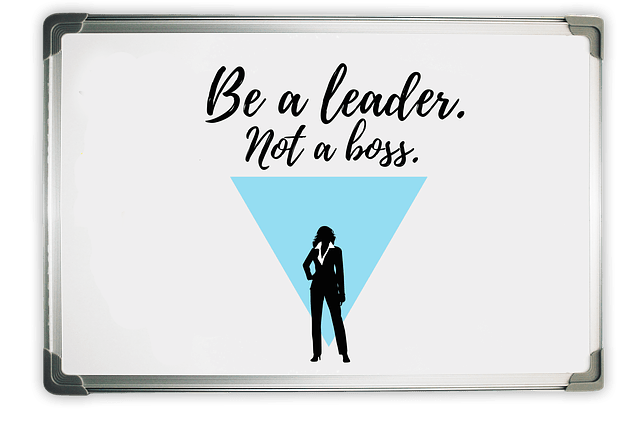
I think my being a techno-entrepreneur gives me a vantage view of all the changes that we see around us.
7. You mentioned the evolution of AI and how it will change our future in your book. According to you, Is there even a remote possibility of AI having emotions too in the future?
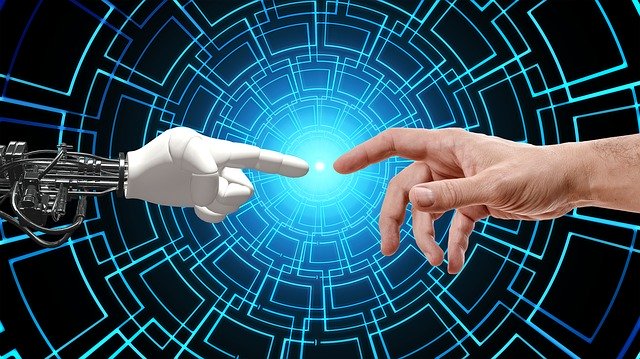
Image by Gerd Altmann from Pixabay
I strongly recommend your readers to read Where will Man Take Us? The book engages illuminates the path that AI will take from becoming super sapient and sentient.
Having said that, I love AI because, strangely, it is the artificial intelligence that is making us ask ourselves some fundamental questions about natural intelligence.
In our quest to bring human-like cognition to AI, we are forced to look at ourselves and our brain, a lot more closely.
How does this physical 3-pound brain transform into the amorphous, incredible mind?
What is it to be human? What is self-awareness? What is consciousness?
These questions are age-old, and we have conveniently used philosophy and religion to answer them. But now, science has acquired the ability to bring us some pertinent answers.
Where we looked to philosophy and religion for answers, we now have a quantitative, algorithmic, scientific lens to seek answers from.
What excites me, is that in our lifetime we might find answers to questions that Kesakambali, Plato, Sankaracharya, and Descartes asked.
What excites me is that in our lifetime, we might finally understand who we really are.
8. When the Industrial Revolution came, there were job losses initially, but over time humans went on to do better things. “AI is showing signs that it might be close to reaching the human level of intelligence.” Do you think the same would happen with AI revolution or do you think humans would become unemployable this time because AI will significantly reduce the number of humans required in each field?
Again, I recommend that you refer to the book, there is a chapter devoted to this topic of AI and Jobs.
In the days to come, AI will take our jobs, for sure. Some 69% of all the known jobs would be displaced by machines. Totally understandable. They are practically error-free.
They take informed steps, every time. They will never repeat a mistake. They don’t want coffee, cigarettes. They don’t have Diwali or Id. That makes these machines, way more efficient than us.
I believe that technology is a creative force it creates more than it destroys. Some displacements for sure, but net: net it creates more than it destroys. It expands our options and helps us realize our full human potential.
But, this change will create huge socio-economic issues. For example, in developed economies, automation will be the new “illegal immigration”. In developing countries, it would be the new face of capitalistic greed.
If jobless growth is the way forward, will all of us be on UBI? Will capitalism finally create new socialism?
The search for a new socio-economic model is WIP.
The more serious and philosophical issue to me is of irrelevance and uselessness.
Why should your country bother about you … you are not fighting its war, not ploughing its fields, not paying taxes … Just demanding dole money/UBI… in that sense not joblessness but uselessness is a more worrisome issue.
Jobs also bring Dignity and meaning to our life.
Work has provided us the dignity and meaning to our lives. Who are you, Atul …umm, I work at a software company. In the absence of a job, what else will give meaning to yours and my life?
In my most sincere belief, why no work and all pleasure be not our destination? Machines may deliver us the nirvana we are looking from our 9 to 5 existence. 9- 5 is our story, a story that took shape in the wake of the industrial revolution.
Look, we are not designed for efficiency… we are designed to be idle, to dream, to write a poem, to sing a song. In a utopian world, we would dream of things for machines to do!
9. There is a lot of debate going around Genetic Editing. Do you think replacing Natural Selection with Human Selection is an ethical thing to do?
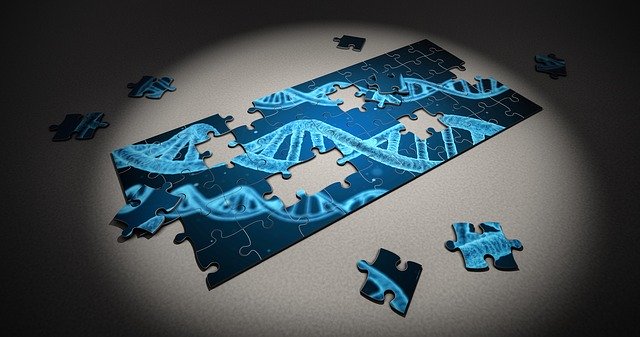
Image by Arek Socha from Pixabay
All this while, it has been natural selection that has driven evolution—where random mutations arise in the genomes of individual organisms, which could be passed on to the offspring, called natural selection because it happens on its own and cannot be influenced. But we stand at a point in history where we will soon have the power to eliminate the word ‘random’ from natural selection. Where we decide what needs to be carried forward and whatnot. This means that evolution tomorrow will be planned and deterministic, not natural and probabilistic. This changes us as a species.
While we got here on the back of natural selection, what takes us forward will be, in all probability, artificial selection. Man has neither the time to allow natural selection the few generations it needs for a change in heritable traits nor the patience to accept random mutations.
We believe we know what we want to do with ourselves and we are developing the tools to do it. The technologies we have invented are merging with our biology— giving us control over pain, disease, ageing and maybe soon, even death. This, makes us our own gods. From here on, we can no longer be content with being mere humans.
And much like Homo habilis evolved into Homo sapiens (via many other Homos), we might evolve into a new species. A new man altogether.
To me, it appears that we are living in a world of magic realism. A rational world with a whole lot of magical elements revealing themselves with every passing day. A world that a Marquez or an Allende would revel in.
We often take biology to be constant. It never has been. Our biology has always been adulterous. Sleeping with the strongest. To survive as the fittest. Our ancestor is not the primate. Our ancestor is the first sign of life. The single-celled microbe. 3.7 billion years ago. That evolved RNA. And went on a journey that through fish and ape, has led us here.
Is this be the end of the road? Why ever would that happen? We will continue to evolve. Only, in the next phase of evolution, the emerging technologies we invented, will have a role to play.
So our adulterous biology will now cohabit with our technologies. What will that merger lead to? What species will it create? Will we be an artificial superintelligence? Living out the rest of man’s history in a transhumanist phase? Probably, as a machine? What is AI were to conclude, without malice, that the best way to eliminate cancer and save the human race, is to eliminate human biology? Or will we achieve immortality? Living on as a brain forever? With or without a body. What if we manage to transfer the magic of our brain to an external storage device? Transfer the ability to think and the ability to experience?
Then we could reside there, in a hard disk on a shelf, for all eternity. Living out our life vicariously, virtually. We swam in the sea. We walked the earth. We flew in the sky. All to rest on a shelf? These of course are not issues concerning our immediate future. What concerns the immediate future are issues that are already impacting us now? Let us look at those.
10. Who is your favorite author of all time? Let us know some of your favorite works from him/her.
As for literary pilgrimages, if you read the book, you’ll realize that it has been a rather long journey.
You’ll find Goscinny and Uderzo here, you’ll find Wittgenstein, you’ll find Vedic writing, you’ll find Russel, you’ll find Richard Dawkins, you’ll find Hegel, you’ll find the Bible, you’ll find George Church, you’ll also find George Carlin. So I didn’t go on a pilgrimage for this particular book. But I have been on a happy pilgrimage all along.
11. How can we use the benefits of technology without being overwhelmed by the adverse effects?
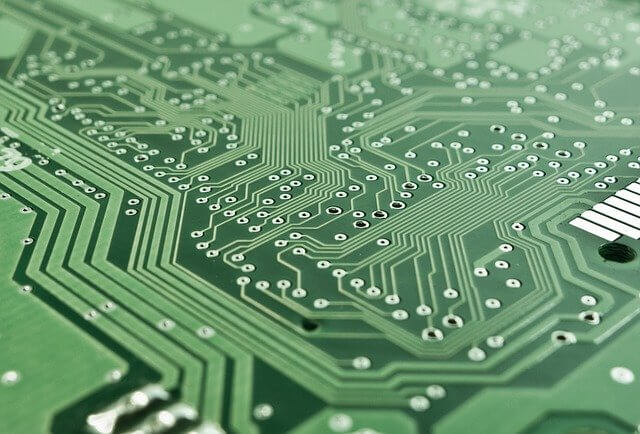
Image by Michael Schwarzenberger from Pixabay
Our codes of ethics and morality have to be re-written as well.
The ethics of how technology is used is a matter of great concern to me.
Technology is amoral, it is neutral and has no morality of its own – a knife is a knife.
But humans are different – we can use that knife to make a salad, cut the Gordian knot, kill others and kill ourselves.
Most of our social norms and institutions came about in wake of last big change driven by technology, the Industrial Revolution. And we have not really prepared ourselves for today and tomorrow.
I believe we have a small window of opportunity to give shape and direction to the forces of change, otherwise, be ready to be dragged in its wake.
And, to shape this vector, we need to have conversations, intelligent conversations. vade vade jayate tattvabodha. Otherwise, we will not have a foundation of knowledge upon which we can build our plans for tomorrow.
12. Tech giants, governments, and advertisers that track thousands of data points might have a significant upper hand in the AI lead world, compared to the companies that are still in the embryo stage. Don’t you think AI might further increase financial inequality?
I recommend you read the book!
Btw, all new technologies expand our options and help us realize our complete human potential. But, technology is the biggest competitive differentiator as well, therefore new technologies will create new categories of super-rich and super powerful.
13. Do you believe that AI might help humans in Sustainable development and decrease the load on the planet? And, Can we expect AI to develop 100% renewable energy and free us from fossil fuels?

Last year I had the privilege of meeting RobertDowneyJr. when I attended the Amazon’s re: MARS conference in Las Vegas. That evening he announced a project called TheFootprintCoalition to be launched in April 2020, to clean up the planet using advanced technologies. “Between robotics and nanotechnology we could probably clean up the planet significantly, if not entirely, within a decade,” he said.
As the Earth continues to feel the adverse effects of mankind’s rampant growth and associated imprudence, new and quicker ways are needed to rein in climate change. AI, Nanotechnology, and Robotics are now being pressed into service on a war footing to find solutions for Environment issues.
While nations bicker and stall at Climate Summits, institutions, individuals, and some nations are going full steam ahead in deploying the technology. Microsoft, IBM, Ocean Data Alliance, Nature Conservancy, PAWS, Green Warriors (#India) are just some of the names working with high tech.
Reducing our carbon footprint is paramount before the time runs out. Technology can be the greatest enabler.
14. What’s your idea of Happiness? Do you believe that information-overload is somewhat making us depressed?

Once again, may I recommend that you read the book, as there is one chapter that deconstructs the universal need of Happiness and one the irony of Social Media.
Having said that, happiness is a state of mind and not a natural trait of mind. The loneliness and depression that one feels through excessive use of smartphones/social media is because we are losing a conscious choice and are becoming scrolling automatons looking for the next fix,
15. What’s your advice for the budding entrepreneurs?
There is no better time to be alive and there is no better time to be an entrepreneur. I am convinced that we are living through the most romantic era in our 200,000 years of civilizational history.
Everything would get re-imagined and re-defined by the forces of AI, Nanotech, Bio-engineering and Quantum computing.
16. Is there anything to learn for the Humans from the Coronavirus Pandemic?
Here is a poem that I penned on how Corona and This new normal has distorted my sense of time. Here it is :
This virus has distorted my sense of time.
I am a little uncertain of the day today.
Friday, did you say?
Then again, it could be Thursday.
February seems a long time ago.
The first day of lockdown? A while ago.
But really, how ago is ago?
For some, the hours are crawling, ever so slowly.
For some it is zorbing down the hill, rolling.
For me, each day appears the same.
This month is just the last with a new name.
One day maybe melting into another
I think I am too dazed to bother.
This virus has disrupted the rhythm of my life
I miss those boring routines that moored me to time.
The dressing and the rushing was morn
The rumble in the tummy was noon.
Here comes the missus with allegations of crime,
Which tell me I am home well past my bedtime.
The last couple of months have been grim.
With the chances of a vaccine ever so slim.
Time has trudged heavy and slow.
And all one could do, was mask-up and lie low.
What is the idea of Time, I wonder
Is it in the mind or is it for real, I ponder.
Where does it come from and where does it go?
What hill does it descend from, to what sea does it flow?
It is time that tells us how long we had lived.
And maybe time does know what lies ahead.
So do we go through time or does time goes through us?
Do we change with time or does time change us?
Time, Aristotle once mused, is the measure of change
Between the beginning and the end, the mid range.
Time is the now and the then,
Which lets us pick precisely the when.
“Time does not exist on its own”, he cries.
“Between the before from the after it lies.”
Time is not just a number, I say.
The hands of time guide me through night and day.
The arrow of time goes just one way.
The past is memory and for the future, let’s pray.
I understand your clock now, Salvador.
You too were behind a locked door.
17. How can readers connect with you? Share your social media links and email
Website: atuljalan.com
Instagram : atuljalan_official
Linkedin: Atul Jalan
Twitter: @atul_jalan
Facebook: Atul Jalan
18. A message for the readers of HappinessDhaba.
Most of our social norms and institutions came about in the wake of the last big change driven by technology, the Industrial Revolution. And we have not really prepared ourselves for today and tomorrow.
I believe we have a small window of opportunity to give shape and direction to the forces of change, otherwise, be ready to be dragged in its wake.
And, to shape this vector, we need to have conversations, intelligent conversations. Vade Vade Jayate Tattvabodha. Otherwise, we will not have a foundation of knowledge upon which we can build our plans for tomorrow.
Which is why we have the Tomorrow Dialogues. So that we can get the best minds to think and talk about tomorrow.
I strongly urge your readers to engage in Tomorrow’s Dialogue.
Grab your copy of this futuristic book here from Amazon.in
This was our 6th Interview in the series “Hearty Conversation with Artists.” And we really enjoyed it. Entrepreneur Turned Author Atul Jalan is someone whom I personally admire a lot. When he talks, the best thing one can do is Listen. Such a storyteller he is.
No one knows what the future holds for us but books like Where will Man Take Us? definitely enlighten us with the possible ways in which the future might unfold.
We wish Atul a Happy & Healthy life ahead.
That’s all we have for today. Thanks a lot for tuning in to HappinessDhaba. Hope, you got to know a lot about Author Atul Jalan.
Do let me know your views in the comment section. Till then, Goodbye.
Signing off with my favorite words.
Zindagi Zindabad!
Author Profile

Recent Posts
 The Punjabi LiteratureJuly 14, 2025Paash on the Death of Dreams ― Sab Ton Khatarnak
The Punjabi LiteratureJuly 14, 2025Paash on the Death of Dreams ― Sab Ton Khatarnak Blog PostsApril 6, 2025Rebuilding Identity After The Self Falls Apart | by Jasmeet
Blog PostsApril 6, 2025Rebuilding Identity After The Self Falls Apart | by Jasmeet Book Summaries & LessonsFebruary 6, 2025BURN IT ALL: Kafka’s Legacy and the Friendship That Saved It
Book Summaries & LessonsFebruary 6, 2025BURN IT ALL: Kafka’s Legacy and the Friendship That Saved It Life Through SongsJanuary 20, 20259 Best Punjabi Heer Ranjha Songs ― The Modern Playlist
Life Through SongsJanuary 20, 20259 Best Punjabi Heer Ranjha Songs ― The Modern Playlist








